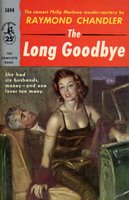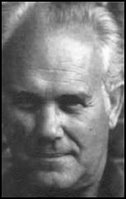Alrighty then. We’re already three weeks into the new year, and I’ve
just pulled together my top 10 list of favorite items from 2006. Now, I'm not simply listing my favorite movies or books of the year. Rather, I'm listing my favorites among
everything that passed my way last year. And with that quick explanation, here we go, in ascending order:
10. Planet Earth Rock and Roll Orchestra. After 23 years, an “authorized” limited-edition CD of Paul Kantner’s 1983 follow-up to his classic sci-fi rock opus Blows Against the Empire was finally made available. And it’s never sounded better. Under Kantner’s auspices, the original master tapes — not the vinyl master, with the very top and lowest frequencies chopped — were carefully transferred to CD format, and PERRO now soars again. It’s a “solo album” that, besides Kantner, showcases most of Jefferson Starship’s early ’80s line-up (including Grace Slick), Jefferson Airplane bassist Jack Casady, guitarist Ronnie Montrose, and vocalists Flo & Eddie (the Turtles’ Mark Volman and Howard Kaylan). PERRO can be ordered online only.
9. It’s Superman! If only the Superman Returns movie had been a smidge as good as this wonderful Tom De Haven novel. De Haven’s Superman is the Depression-era Siegel and Shuster original, stripped down to his bare bones. It’s Superman! is a brilliant mix of Steinbeck, gangster noir, and retro sci-fi — a revisionist masterpiece.
8. Doctor Who. The new, reinvigorated Doctor Who series recently finished its second season on the SciFi Channel here in the U.S. and has already launched into its third in the UK. And it’s exhilarating. The standout episode for me in 2006 was a landmark show titled “School Reunion,” which charmingly reunited The Doctor (David Tennant) with his 1970s female companion Sarah Jane Smith (Elisabeth Sladen); the meeting of the now-younger Doctor with the now-older Sarah Jane was absolute magic. Likewise, who could watch the Season Two finale without getting weepy? Not me. This series is a keeper.

7. The Complete Mr. Arkadin (aka Confidential Report). For me, this 3-disc Criterion DVD package is a “film school in a box,” the best DVD release of last year. For more than three decades, some half-dozen different edits of Orson Welles’ 1955 thriller-noir Mr. Arkadin floated around art movie houses and college campuses in horrible disrepair. Criterion fixed the problem by offering this beautifully restored set of the 1955 European release (Confidential Report), the 1962 American release, and a 2006 “comprehensive version” stitched together by experts at the Munich Film Archives. The DVD package leaves no stoned unturned and includes a trade paperback of Welles’ novelization of the movie, audio commentary, an interview with one of the movie’s stars, three half-hour episodes of Welles’ 1951 BBC radio program The Lives of Harry Lime (which included plot components later used in Mr. Arkadin), and lots of other magnificent things. Fans of Welles, cinematic oddities, and film noir should not miss this.
6. Duane Swierczynski. This young guy now sits on my list of “must read” crime novelists, alongside Andrew Vachss, Dennis Lehane, and Richard Stark. I read The Wheelman and The Blonde late last year, and they both twist exciting and unexpected kinks into the old crime genre. Swierczynski rocks. Big time.
5. V for Vendetta. Anything I say here about the movie adaptation of Alan Moore’s graphic novel will be superfluous. But I’ll say something anyway: V for Vendetta, which won a Prometheus Hall of Fame award last summer, set a new standard by which tomorrow’s politically radical films will be measured.
4. Casino Royale. Everything worked in this “back to basics” relaunch of the 007 movie franchise. Every goddamn thing. Even the controversial casting of a blonde Daniel Craig as the new James Bond. Casino Royale is a high-water mark in the film series, the most faithful adaptation of Ian Fleming ever, and is the best movie I saw all last year. It’s not just a great 007 film; it’s a great film...period.
3. Starship Sofa. During the past few months, I’ve been increasingly charmed by the podcasting antics of Tony and Ciaran, two sci-fi geeks from the UK. How can I best describe this podcast? It’s not easy. Each week, these guys focus their show on one of their favorite authors or movies, but the conversation always runs astray and into all sorts of fun topics. I love their accents, their attitudes, everything about these two. And in one (or sometimes more) hours a week, I manage to get more laughs and entertainment than I have any right to expect. I particularly recommend their two-part Christmas Special, which even included some holiday recipes from Ciaran, and their programs on L. Ron Hubbard and James Tiptree, Jr. I can’t praise Starship Sofa highly enough.

2. Uncle Warren’s Attic. Warren Bluhm and I have known each other since junior high, for more than three decades, but we’ve still never met face to face. Nor have we ever spoken with each other on the phone. We began as paper-and-ink pen-pals when I was 13 and Warren was 14, lost touch for some 35 years, then by strange coincidence rekindled our relationship just two years ago via email. Remarkably, we discovered that our lives had followed similar paths professionally, politically, and spiritually during our “lost years.” Kismet? Who cares? My genuine affection for Warren continues to grow, due in no small part to our current email exchanges and his fantastic podcast, Uncle Warren’s Attic. UWA is an eclectic weekly collection of music, jingles, radio advertisements, and home recordings that never fails to put a grin on my face. It’s a delightful tonic for whatever ails you, and lately, it’s helped get me through some pretty rough times. Thanks, pal.
1. Heroes. The second half of Season One begins this coming Monday night, and I’m chomping at the bit. For my money, this is the best series on TV right now. Despite what you may have heard, you don’t even need a nodding acquaintance with comic books and superheroes to like it. And if you do like comic books and superheroes and haven’t yet caught up with Heroes, what the hell’s wrong with you?
 There are more than just a few of us still waiting patiently for Quentin Tarantino's re-edit of the Kill Bill saga, parts 1 and 2 tenderly stitched together into a glorious, four-hour revenge fest titled Kill Bill: The Whole Bloody Affair. Almost three years after the DVD release of the original two movies, and the promise of a re-edited Bill, nothing.
There are more than just a few of us still waiting patiently for Quentin Tarantino's re-edit of the Kill Bill saga, parts 1 and 2 tenderly stitched together into a glorious, four-hour revenge fest titled Kill Bill: The Whole Bloody Affair. Almost three years after the DVD release of the original two movies, and the promise of a re-edited Bill, nothing. 



























